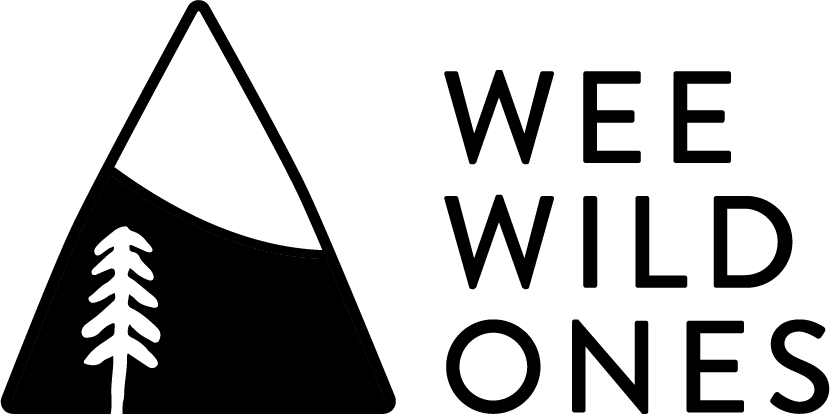How We’re Decolonizing our Curriculum
In the fall of 2021, we were thrilled to partner with Mount Royal University’s (MRU) Department of Child Studies program and be a part of their undergraduate capstone project. Greeted by 12 MRU students, we worked with the students to create three separate projects that the undergraduates would focus on for the year. The group themes include Curriculum, Team Members, and our Non-Profit, WilderFutures.
Now, with their final year coming to a close, we asked each capstone group to share their experience with our Wee Wild Ones community. Up first is Capstone Group A: Curriculum. Read on to learn more about their project and the key takeaways from their experience.
"At the beginning of the year, our team was directed to create an inclusive, non-biased curriculum by weaving Wee Wild Ones pedagogy with Treaty 7 Indigenous ways of teaching. However, despite half of our group being Indigenous (Métis, and Blackfoot), our group shortly realized that the input of representatives from the Treaty 7 nations should be considered when creating a curriculum. This new knowledge became the foundation when beginning our project journey.
As we began researching and unpacking more information, we felt it was also necessary to learn and understand the term "decolonization" within the curriculum context.
What is Decolonization?
Decolonization is the work of everyone and must be undertaken by individuals and groups in the hope of creating a more open and inclusive society for everyone.
Similarly, in our exploration of decolonization and its meaning, our group was encouraged to understand another key term, "Indigenization," and its relationship to decolonization and our project work.
What is Indigenization?
Indigenization is the work of Indigenous people as it involves bringing diverse Indigenous ways of knowing into traditionally Western-dominated settings such as education, health, and justice.
Knowing the difference between these two terms and what they represent helped our group understand our project's objectives and goals.
The Creation of Wee Wild Ones Advisory Circle
From this new learning, we recognized that in order to Indigenize the Wee Wild Ones curriculum, we must have the support and relationship of Treaty 7 Peoples. Thus we formed the Wee Wild Ones’ Advisory Circle. The circle is designed to bring Treaty 7 elders and knowledge holders together to review the current curriculum and advise Wee Wild Ones on recommended additions that honour and respect each of their nations and experiences.
Currently, the council has three members and male representatives from the Siksika, and Tsuu T'ina nations. The elders are Clarence Wolfleg (siksika), Hayden Melting Tallow (siksika), and Hal Eagletail (Tsuu T'ina).
The process of building relationships with Elders and knowledge holders is long and requires an understanding of traditional protocols. As students, we are still learning these protocols, and though our roles in the project are over, it is important that the next group of students who continue the development of this council ensure that their actions are rooted in traditional protocol, and reciprocal relationships, humility, and love.
It is our hope that the council will grow to include Métis, Îyârhe Nakoda, Inuit, kainai, and piikani voices, male and female, to ensure that the knowledge that will inform the evolution of the Wee Wild Ones curriculum is inclusive of all Treaty 7 voices.
The Indigenization work that Wee Wild Ones is engaging in, is an essential component of their journey to decolonization and truth and reconciliation. Indigenization in this context will allow WWO to begin to understand the truth of the complex and harmful histories between Canada, and the First Nations, Métis, and Inuit Peoples thus allowing them to build a curriculum that honours both sides of that history. The curriculum changes that come from the relationship between Wee Wild Ones and the members of the Advisory Circle will help Wee Wild Ones in their mission to create a centre that is more than just a facility, but rather a home where children and families of all backgrounds feel seen, safe, loved, and respected.
Authored by,
Courtney Gariepy, Kyla Tailfeathers, Hiba Almopta, and Gemma Bayne
As an early education centre that believes in raising our critical thinkers and future leaders of tomorrow, we are beyond grateful for the thoughtful and intentional work these students have created over the past academic term. We look forward to carrying on the process of decolonizing our curriculum with the support and guidance of our Advisory Circle.
To learn more about this year's Capstone teams, click here.


